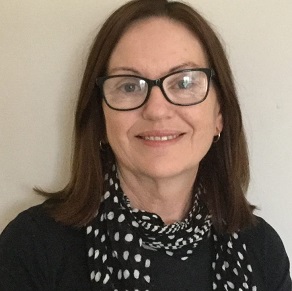This article explores the potential impacts of trauma on children and young people.
It is the first step in adopting a trauma-informed approach when working therapeutically with children and young people.
The Australian Psychological Society (APS) defines trauma as, “very frightening or distressing events that may result in a psychological wound or injury”.
Bloom and Farragher (2011), suggest that family and domestic violence impacts a person more than a natural disaster such as a bushfire. Australian research also suggests that by the time young people are 16 years of age, approximately 75% of them will have been exposed to a distressing event (Olesen, S. C., Macdonald, E., Raphael, B., and Butterworth, P. 2010).
Reactions to Trauma
People experiencing trauma may feel overwhelmed and experience difficulty in coping or functioning normally (Blueknot Foundation).
Each child’s reaction to trauma can be different, and most recover, and have good mental health. However, for some who experience ongoing traumatic experiences there is research to suggest these experiences can alter a child’s brain as it develops.
The foundation for all future brain development (including mental health) occurs in early childhood. It is also the time when children commence their formal schooling. The neural pathways of the brain form when experiences (good, bad or traumatic) are repeated, as it learns how to respond and what to expect.
When experiences are traumatic, the neural pathways that get the most use are the ones responding to the trauma experiences.
Three key areas of the brain are impacted when a child experiences ongoing trauma: they are the amygdala, the hippocampus and the prefrontal cortex.
The Amygdala is in charge of the fear centre of your brain. It lets you know when it senses danger and it triggers the fight, flight or freeze response, that we all have (Shonkoff, J. P. 2012).
Children impacted by trauma may be in a constant state of high alert which stops them from feeling calm and safe. This part of the brain also controls emotional responses, which is why children impacted by trauma often need help to calm down and may not recognise their own feelings. It also helps to explain why developing emotional literacy in young children is so important.
The Hippocampus is essential to learning and memory. Childhood trauma can result in reduced memory and capacity to learn; this is why children who have experienced trauma fall behind at school and often never catch-up (McCrory, E., De Brito, S. A., and Viding, E. (2011). I often hear in my therapeutic practice young people saying, “oh yer, I have a bad memory” and “yep, school is hard”.
The prefrontal cortex helps with problem solving, planning and assessing risk. This can be a difficult part of the brain to access if you have ongoing trauma, because your amygdala has you on high alert. You are focused on your safety and avoiding dangers, not on problem solving and so on.
Reducing the Impacts of Trauma
Neuroplasticity is a term that is good news to young people impacted by trauma; it means that the brain is dynamic and constantly evolving. The human brain can form new connections and be rewired to help overcome the impacts of ongoing trauma.
Strong relationships between children and their families or care givers, and building new and positive experiences, can help them recover from trauma and improve their achievements over time (Hirshberg, L. (2011).
The old saying “use it or lose it” really does apply to the brain. So, the more the brain is used to build positive connections through healthy relationships, the better potential for improved mental health and academic outcomes.
 Author: Maree Stevens, BAdVocEd; GCert Sp Ed; M SocWk; M HumServ; GDipCouns; GCert MentalHlthPrac.
Author: Maree Stevens, BAdVocEd; GCert Sp Ed; M SocWk; M HumServ; GDipCouns; GCert MentalHlthPrac.
Maree is an Accredited Mental Health Social Worker with several years’ experience working with children, young people and their families impacted by Family and Domestic Violence. Maree’s work is trauma informed and person centred, and she is able to provide psychological counselling to young children from age 5 years, as well as to teens and adults.
Maree is currently not taking bookings. Our team can assist you with placing you with another clinician. Please call Vision Psychology on (07) 3088 5422.